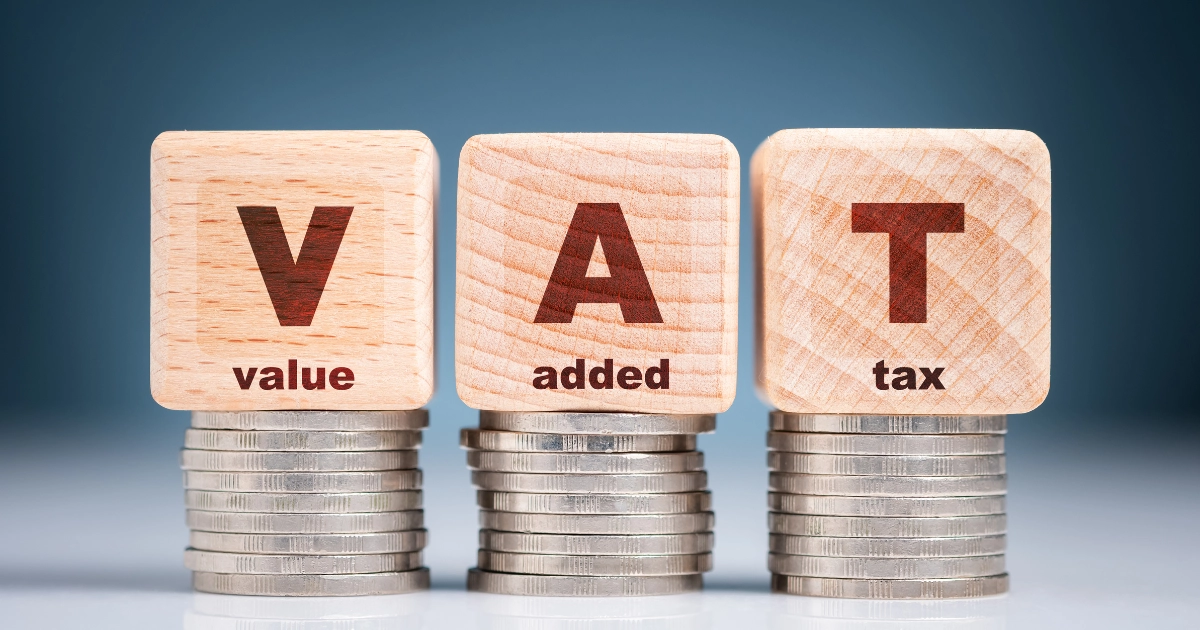What is a VAT Number?

A VAT number, or Value-Added Tax number, is a unique identifier assigned to businesses registered for VAT. It serves as proof that a business is authorized to collect and remit VAT on taxable transactions. VAT numbers are crucial for compliance, allowing businesses to issue valid invoices, claim VAT on expenses, and participate in cross-border trade. Each country formats VAT numbers differently, often including a prefix indicating the country (e.g., “GB” for the UK or “IE” for Ireland). Having a VAT number enhances business credibility and ensures alignment with tax regulations.
VAT is a form of consumption tax because it’s ultimately borne by the final consumer of the goods or services
1. Understanding Value-Added Tax (VAT)
Value-Added Tax (VAT) is a consumption tax levied on the value added to goods and services at each stage of production and distribution. Unlike a sales tax, which is applied only at the final point of sale to the consumer, VAT is collected incrementally throughout the supply chain. Each business in the chain collects VAT on its sales and remits it to the government, after deducting any VAT it has paid on its purchases (input tax). This mechanism avoids the compounding effect of tax on tax, ensuring that the final tax burden rests on the end consumer.
2. Illustrating VAT in Action:
Consider a furniture maker. They purchase raw materials (wood, fabric, etc.) and pay VAT on those purchases. When they sell the finished furniture to a retailer, they charge VAT on the selling price. The furniture maker then remits the difference between the VAT collected and the VAT paid on the raw materials to the government. The retailer, in turn, collects VAT when they sell the furniture to the consumer and remits the difference after deducting the VAT paid to the furniture maker. This process continues along the supply chain, ensuring the government collects VAT at each stage of value addition.
3. The Importance of VAT Numbers
A VAT number, or Value-Added Tax Identification Number, is a unique identifier assigned to businesses registered for VAT. It serves as irrefutable proof that a business is authorized to collect and remit VAT on taxable transactions. The VAT number is crucial for various aspects of business operations:
- Legal Compliance: A VAT number is fundamental for complying with tax regulations. Operating without a VAT number when required can result in significant penalties, legal repercussions, and damage to business reputation.
- Cross-Border Trade: For businesses engaged in international trade, particularly within the European Union (EU), VAT numbers are essential for navigating complex cross-border VAT obligations. They facilitate the zero-rating of VAT on exports and simplify compliance with Intrastat reporting, which tracks the movement of goods within the EU.
- Invoicing Standards: Many jurisdictions mandate that businesses display their VAT number on invoices. This validates transactions, allows customers to reclaim VAT on their purchases (input tax deduction), and ensures transparency in business dealings. Without a valid VAT number on an invoice, customers might be unable to claim VAT deductions, potentially impacting business relationships.
- Fraud Prevention: VAT numbers play a critical role in combating tax fraud. They provide tax authorities with a mechanism to track and audit transactions, minimizing opportunities for evasion and ensuring the integrity of the VAT system.
- Enhanced Credibility: Displaying a VAT number enhances a business’s credibility and professionalism. Customers, particularly in business-to-business (B2B) transactions, often prefer working with VAT-registered companies as it simplifies their own VAT accounting processes and demonstrates a commitment to legal compliance.
4. Who Needs a VAT Number?
While not all businesses are required to register for VAT, specific criteria typically determine the obligation. These criteria often include the nature of the business activities and the annual turnover. Common categories of businesses requiring VAT registration include:
- Businesses Selling Taxable Goods and Services: Businesses that sell goods or services subject to VAT are usually required to register once their turnover exceeds a certain threshold, which varies by country.
- Importers and Exporters: Businesses involved in international trade, importing or exporting goods, typically require a VAT number to manage their cross-border VAT obligations.
- E-commerce Sellers: Online businesses, especially those selling to customers in different countries, often need VAT numbers to comply with international VAT rules, such as the EU VAT rules for digital services.
5. Finding and Verifying VAT Numbers in Ireland (and the EU)
- Finding Your Own Irish VAT Number: If your business is registered for VAT in Ireland, the VAT number is provided in the confirmation letter or email from the Irish Revenue Commissioners. It is also printed on official documents like the VAT registration certificate and available through your Revenue Online Service (ROS) account.
- Verifying Another Business’s VAT Number: The VAT Information Exchange System (VIES) is an EU-wide online tool for verifying VAT numbers. Access the VIES website, select the relevant country (e.g., Ireland), enter the VAT number, and the system will confirm its validity and provide the business name and address, if available.
- Irish VAT Number Format: Irish VAT numbers generally follow the format IE followed by seven characters (a mix of numbers and letters), sometimes followed by a W. For example, IE1234567A or IE1234567AW.
- Contacting Irish Revenue for Assistance: For any assistance related to finding or verifying a VAT number, or any other VAT-related queries, contact the Irish Revenue Commissioners directly through their helpline or online query forms.
6. Conclusion
A VAT number is an essential identifier for businesses operating within a VAT regime. It ensures compliance with tax regulations, facilitates seamless participation in domestic and international trade, and enhances credibility with customers and authorities. Understanding the nuances of VAT and the importance of VAT numbers is crucial for maintaining smooth business operations, particularly for those engaged in cross-border transactions. Proper registration and management of your VAT number not only ensure compliance but also position your business for growth in today’s interconnected global marketplace.
Gimbla Contributor | December 5th, 2024